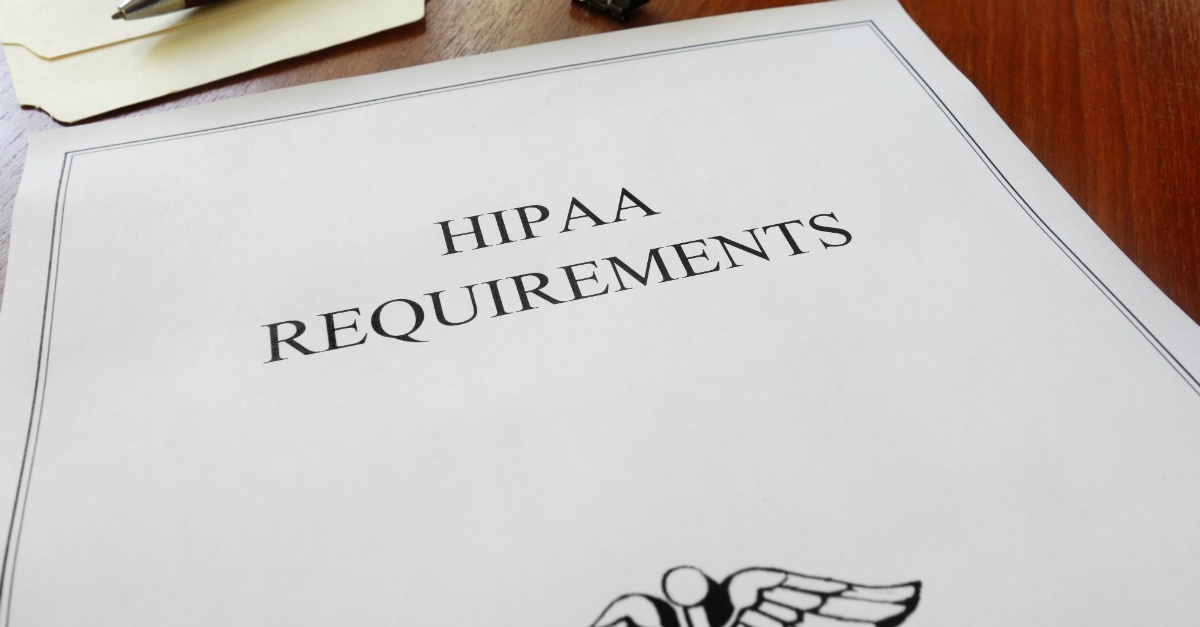Blog
4 Reasons to Seek Help with HIPAA Compliance

HIPAA compliance is increasingly important heading into 2022.
Why?
More than 3,700 breaches have been reported between 2009 and 2020.
And, according to an analysis by HIPAA Journal, significant healthcare data breaches (of 500 records or more) nearly doubled over the last three years—breaches were being reported at a rate of around 1 per day in 2018 compared to 1.76 in 2020.
Coupled with the fact that a data breach in healthcare costs more than any other industry (via IBM), it is paramount to comply with HIPAA regulations as they relate to cybersecurity.
What Is HIPAA?
HIPAA, or the Health Insurance Portability and Accountability Act of 1996, helps protect sensitive patient health information from being disclosed with the patient’s consent or knowledge.
HIPAA covers entities such as:
- Healthcare providers
- Health plans
- Healthcare clearinghouses
- Business associates
Specifically, the Department of Health and Human Services provides information on how these entities can educate themselves about cybersecurity incidents.
By complying with HIPAA, healthcare entities reduce their risk of being penalized for an incident, as well as any damage that may come to their reputation.
However, achieving HIPAA compliance can be tough because of the many intricacies involved.
We’ve found over the years that there are four reasons healthcare practices have in common when it comes to seeking outside help with HIPAA compliance.
1. Your Team Is Overwhelmed
Each person on your team may juggle multiple roles and wear several hats.
Naturally, that can lead to individuals feeling overwhelmed.
If your team is stretched thin, HIPAA compliance can be a tall ask.
The regulations often require modifying your security strategy and controls, carefully handling and storing sensitive data, and more.
Someone has to be tasked with overseeing these things—if your team is short on free time, it can easily fall through the cracks.
If your team is overwhelmed trying to stay on top of HIPAA requirements, seek help from a third party.
2. You Need Help With HIPAA’s Details
Even though your team may know what HIPAA requires, understanding how to implement the controls could be a challenge.
Even minor slip-ups can result in violations.
Find an expert who knows the ins and outs of data security. A qualified managed security services provider can evaluate your security posture, explain how your controls stack up to HIPAA, and show you how to become and remain compliant.
If you're not currently partnered with a third-party IT company, now could be the time to change that.
3. You're Spending Too Much Time On HIPAA Compliance
When your team is overwhelmed or stretched thin, your first reaction might be to step in yourself and try to handle it.
However, delegation is a key part of business leadership.
If you've assumed the responsibility of ensuring that your healthcare organization stays HIPAA-compliant, that pulls your attention away from other aspects of your business.
When that's the case, you're in danger of neglecting HIPAA and putting your organization at a higher risk of a cybersecurity incident.
Don't let either side suffer.
Find help from a third party instead.
4. You Want Help Training Your Team On HIPAA
Is your team adequately prepared to handle sensitive medical information in compliance with HIPAA?
If your team isn't currently engaged in security awareness training for healthcare, there's a strong chance that the answer is “no.”
A lack of security awareness increases the likelihood for a HIPAA violation.
If you don't have a security awareness program in place today, reach out to a third party for help.
Ideally, find a healthcare IT services partner who has experience building and executing on effective security awareness programming.
Integrity helps healthcare organizations keep protected health information secure. Implementing HIPAA’s provisions can be challenging for medical practices, hospitals, and other organizations handling this data. That’s why, instead of risking violations, we advocate that companies enlist a partner to help them achieve HIPAA compliance. Get specialized support from a HCISPP and CHP Certified Security Advisor and rest assured that patient data is secure and compliant. In the meantime, please download your complimentary guide for Cybersecurity Protection & Detection For Clinical Healthcare Practices.


Leave a Reply